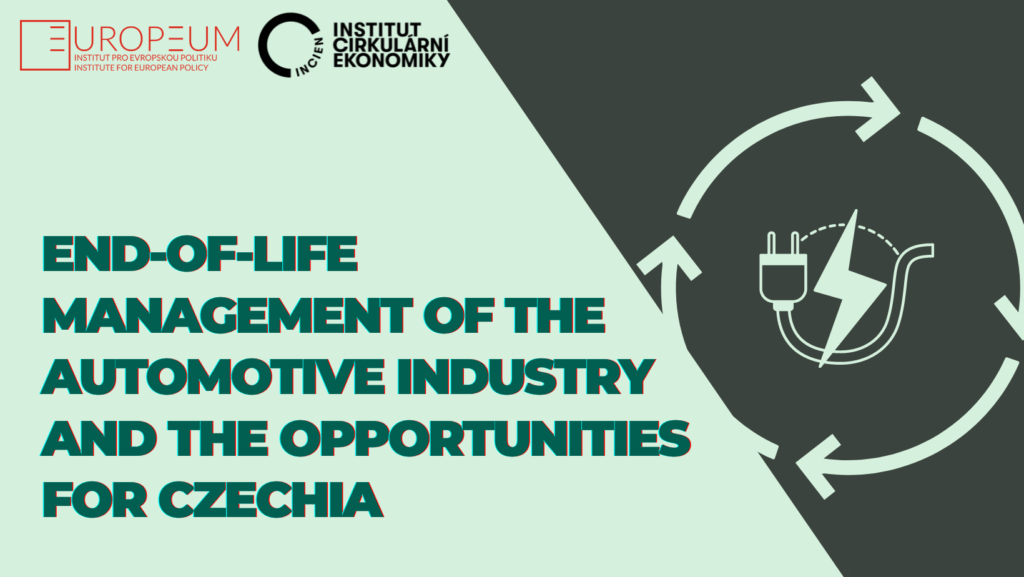
Circularity and lifecycle management of batteries and structural materials in the automotive industry as an opportunity for Czechia*
More info 30. 11. 2024
30. 11. 2024
After three successful projects focusing on the decarbonization of the Czech automotive industry, the Green Europe team of EUROPEUM in collaboration with the Institute of Circular Economy (INCIEN) is broadening its focus and taking a more circular approach. This project will focus on better lifecycle and end-of-life management of materials used in vehicles and batteries. The collaboration will be split into two research areas.
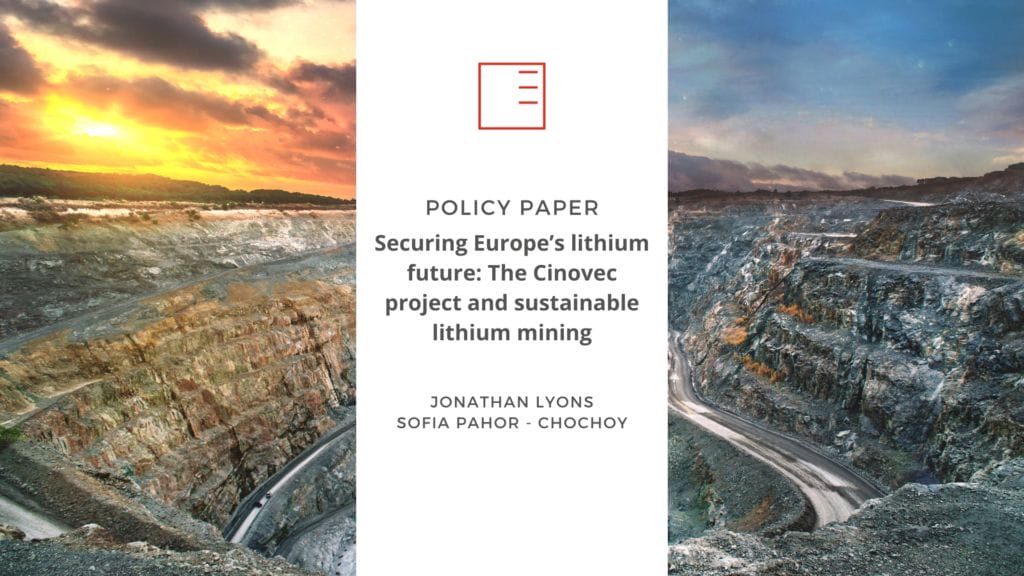
Policy Paper | Securing Europe’s Lithium Future: The Cinovec project and sustainable lithium mining
More info 25. 3. 2024
25. 3. 2024
The EU's proactive stance, introduced in the Critical Raw Material Strategy and later Critical Raw Materials Act (CRMA), drives the EU approach to secure the supply of European/domestic critical raw materials for EV battery production. The Cinovec project has a large economic potential as it enhances the ability to secure domestic and regional supply of lithium, which is otherwise very geographically concentrated outside of Europe. Europe relies on a handful of countries, particularly China, for the import of lithium for the production of EV batteries.
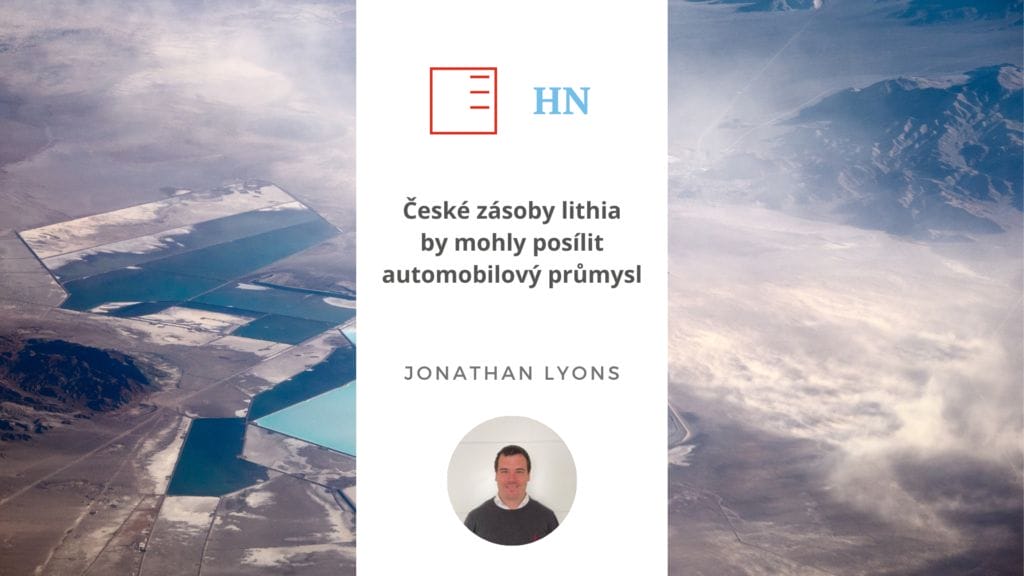
Hospodářské noviny | Czech lithium reserves could boost the automotive industry
More info 5. 3. 2024
5. 3. 2024
The Czech Republic has vast reserves of lithium, a crucial resource for manufacturing batteries for electric vehicles. However, it lags behind in other aspects of the battery supply chain, such as production and recycling. And yet, these key industry sectors could potentially help in saving the local automotive industry. Jonathan Lyons, an analyst at the EUROPEUM Institute, further explored this issue and the potential benefits of lithium for the Czech economy in an article for Hospodářské noviny.
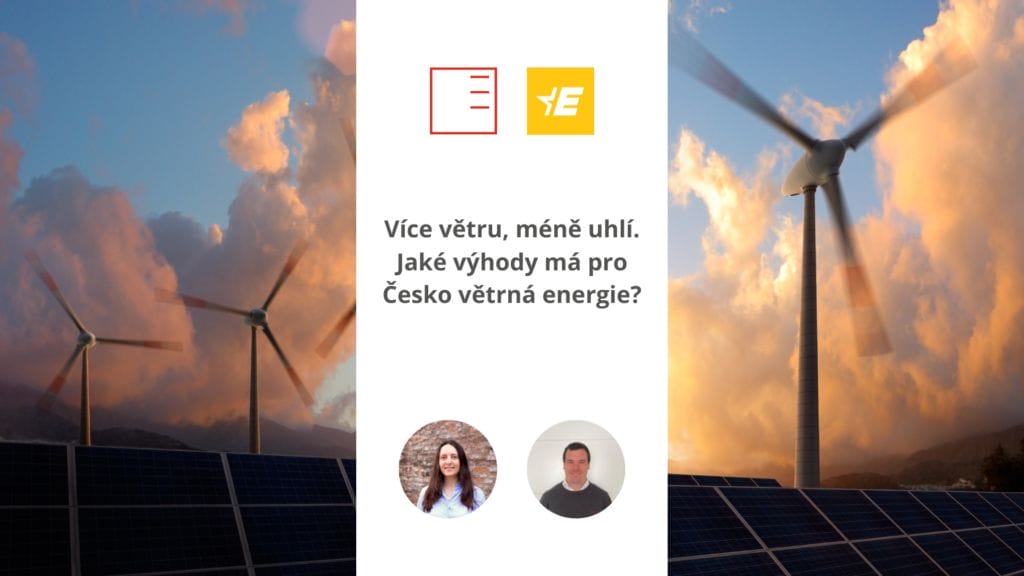
Euractiv | More wind, less coal. What are the benefits of wind energy for the Czech Republic?
More info 27. 12. 2023
27. 12. 2023
Coal has been an important part of the Czech economy for decades. As a fossil fuel, however, it is a significant producer of greenhouse gases, especially CO2. Our Research Fellow Jonathan Lyons and Senior Research Fellow Kateřina Davidová write in their commentary about the benefits of decarbonisation and switching to wind energy.
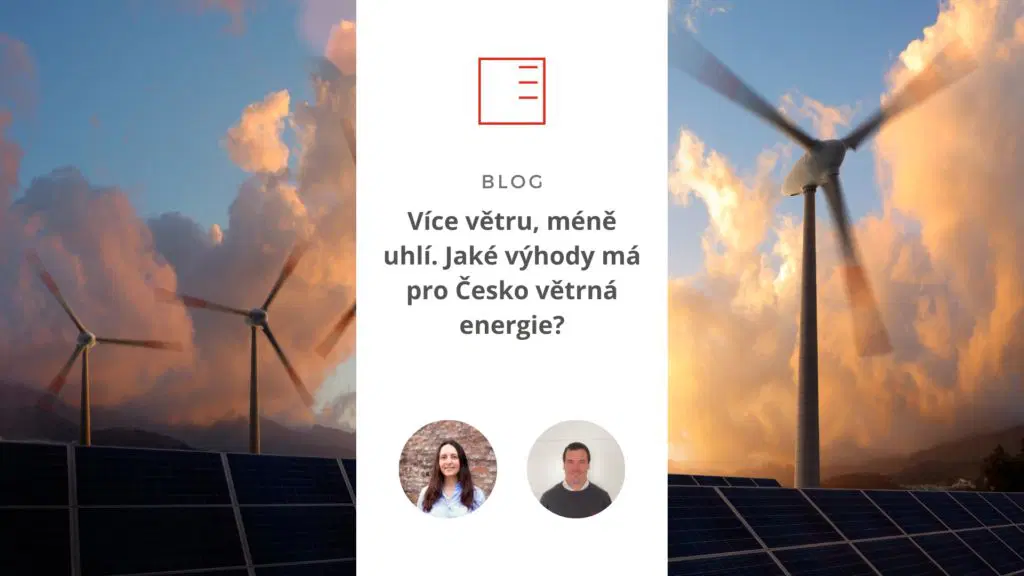
BLOG | The pressure for decarbonisation in the Czech Republic is growing. How profitable is wind energy for the Czech Republic?
More info 25. 12. 2023
25. 12. 2023
Coal has been an important part of the Czech economy for decades. As a fossil fuel, however, it is a significant producer of greenhouse gases, especially CO2. Our Research Fellow Jonathan Lyons and Senior Research Fellow Kateřina Davidová write in their blog about the benefits of decarbonisation and switching to wind energy.
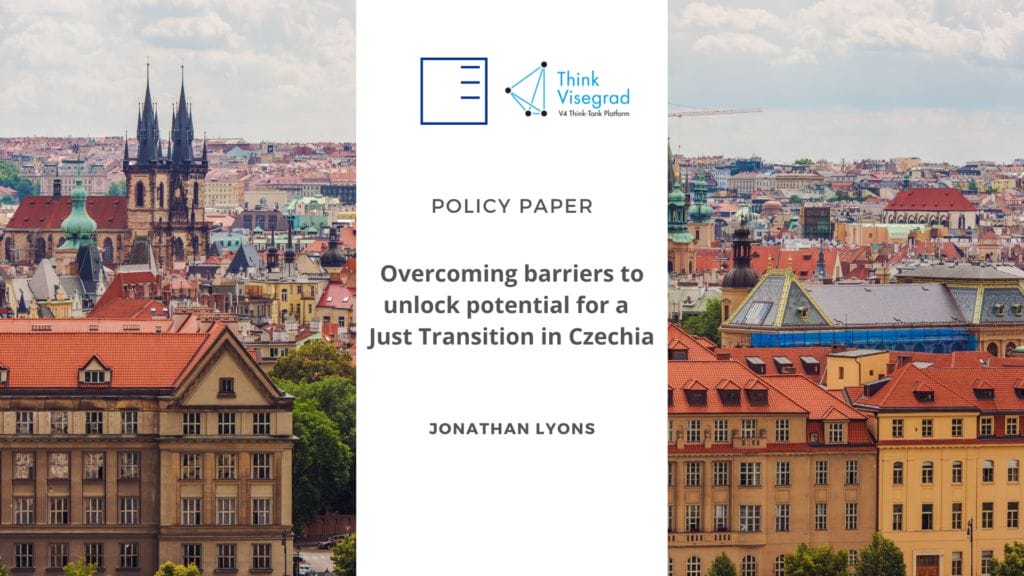
Policy Paper | Overcoming barriers to unlock potential for a Just Transition in Czechia
More info 28. 11. 2023
28. 11. 2023
The energy transition focuses on the swift and full decarbonization of our economies by moving away from fossil fuels such as coal, natural gas and oil towards carbon-free and preferably renewable energy sources such as wind, solar, geothermal, bioenergy and hydropower. The global community agreed to limiting the global average temperature to 1.5C to prevent worsening of potentially irreversible effects of climate change. Writes Jonathan Lyons.
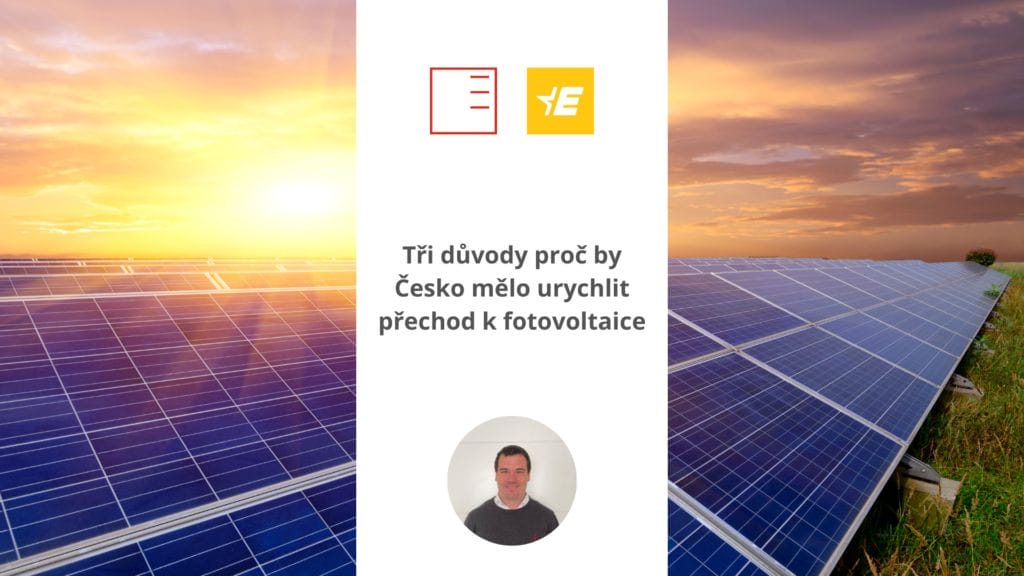
EURACTIV: Three reasons why the Czech Republic should accelerate the transition to photovoltaics
More info 19. 9. 2023
19. 9. 2023
According to the International Energy Agency (IEA), solar energy is the cheapest source of electricity in the world, but the Czech Republic still lags far behind the European average. What are its advantages, and how to speed up its implementation in the Czech Republic as quickly as possible? These are the topics discussed by Jonathan Lyons and Kristína Kráľovská, research associates at EUROPEUM Institute, in collaboration with editor Kateřina Horáková in a new article on EURACTIV.cz.
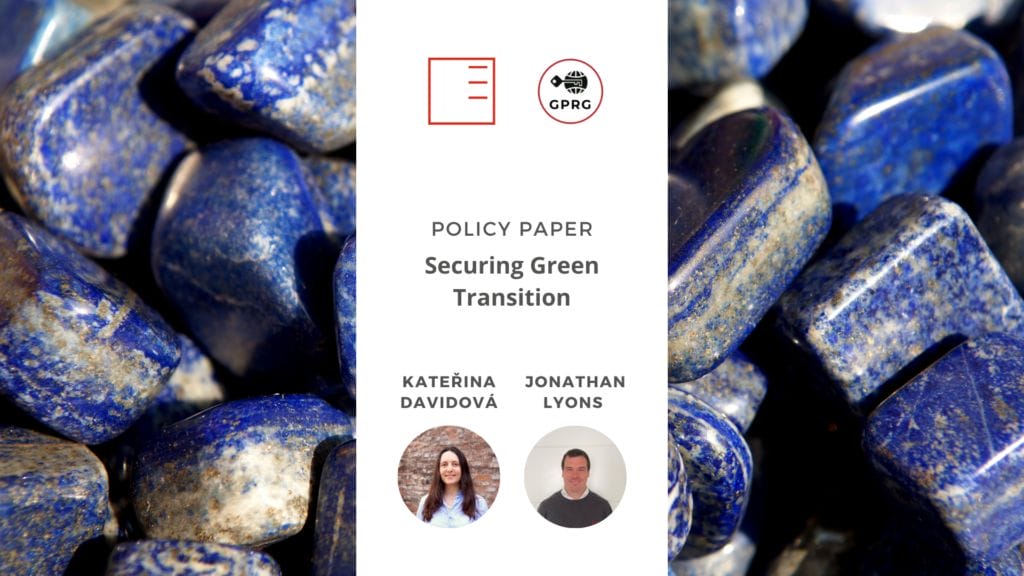
Policy Paper | Securing Green Transition
More info 1. 8. 2023
1. 8. 2023
Our Senior Research Fellow, Kateřina Davidová and Research Associate, Jonathan Lyons, in partnership with the Global Policy Research Group, have collaborated on a study that examines the secure and sustainable supply of critical raw materials (CRMs) that are key to green technologies. The study recommends a strategy for Sweden and the Czech Republic to ensure sustainable supply chains to help the transition to green technologies.
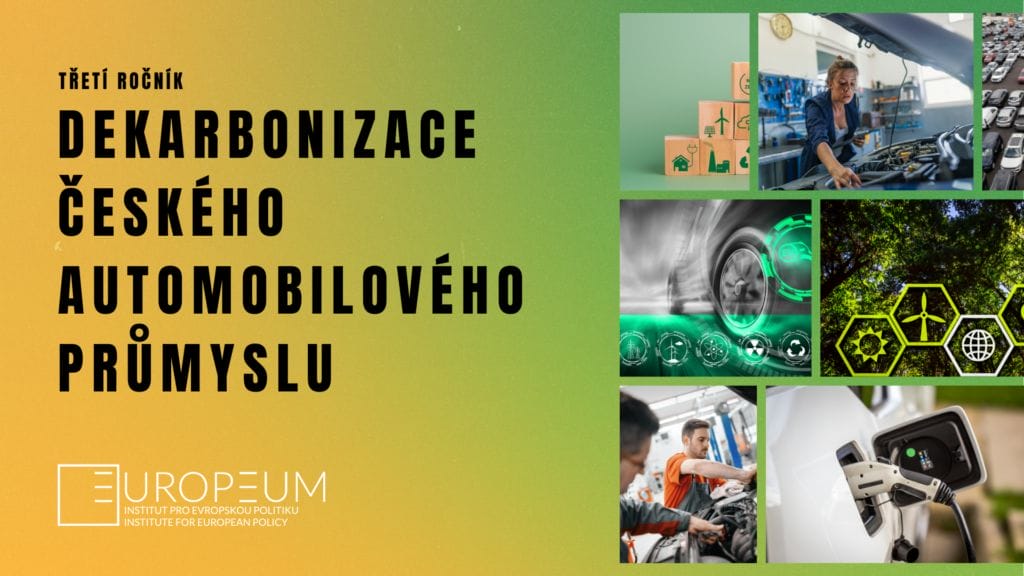
Third year | Decarbonisation of the Czech automotive industry
More info 16. 5. 2023
16. 5. 2023
The climate team of EUROPEUM is currently delivering the 3rd year of its project focused on the decarbonisation of the automotive industry in the Czech Republic. We want to build upon our experience and move this work forward with a more targeted approach. We will focus on three main areas, which we have identified as crucial parts of the puzzle for transitioning to cleaner modes of transport.
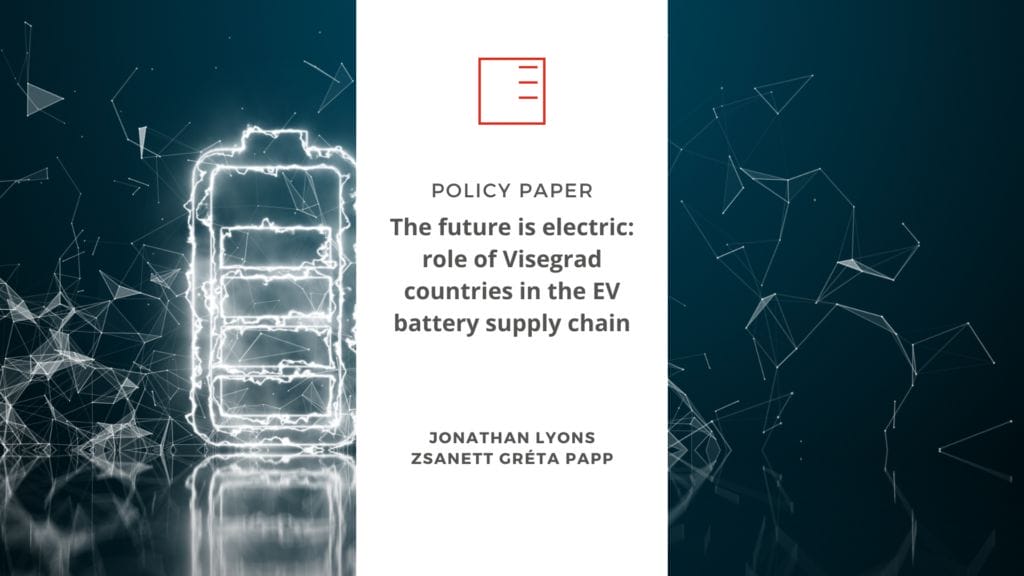
Policy Paper | The future is electric: role of Visegrad countries in the EV battery supply chain
More info 24. 3. 2023
24. 3. 2023
The car industry is a crucial player for the economies of each Visegrad country, but to remain competitive adaptation is necessary. Since the shift from ICE to EVs leads to a substantial need for Critical Raw Materials (CRM), the V4 countries have and must continue to position themselves along the different parts of the EV battery supply chain from mining, refining to manufacturing, reuse and recycling as well as R&D into new battery chemistries.
The future is electric: role of the Visegrad countries in the EV battery supply chain report addresses areas for Visegrad countries to ensure a sustainable and reliable EV battery supply chain.
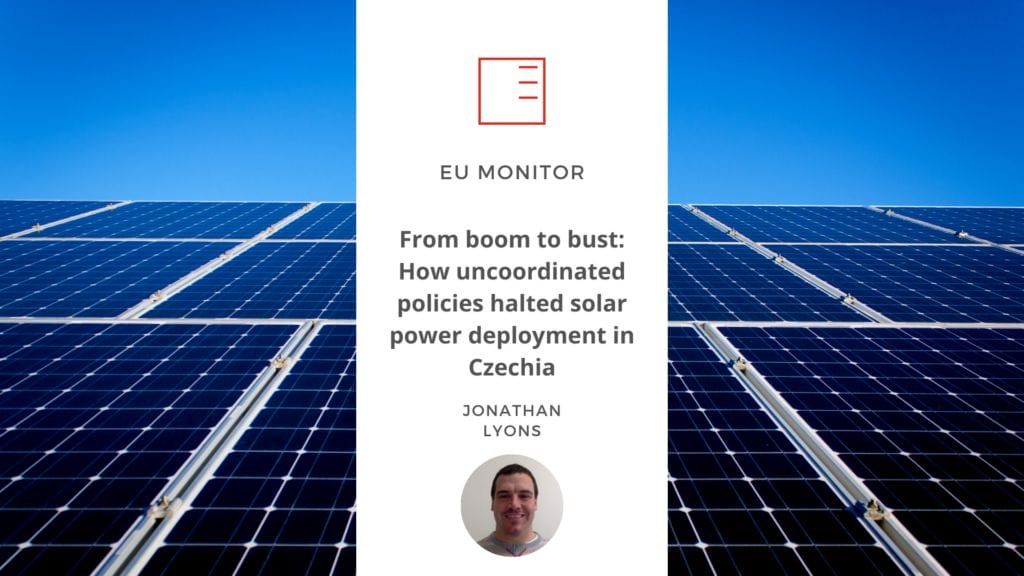
EU MONITOR | From boom to bust: How uncoordinated policies halted solar power deployment in Czechia
More info 12. 12. 2022
12. 12. 2022
In his EU Monitor, Jonathan Lyons writes about the future of solar energy in the Czech Republic. "Harnessing the full potential of solar energy will not only help to meet the EU's decarbonisation targets, but also boost energy security and create local jobs. The potential for solar energy in the Czech Republic is considerable, up to 12 GW," writes Lyons.
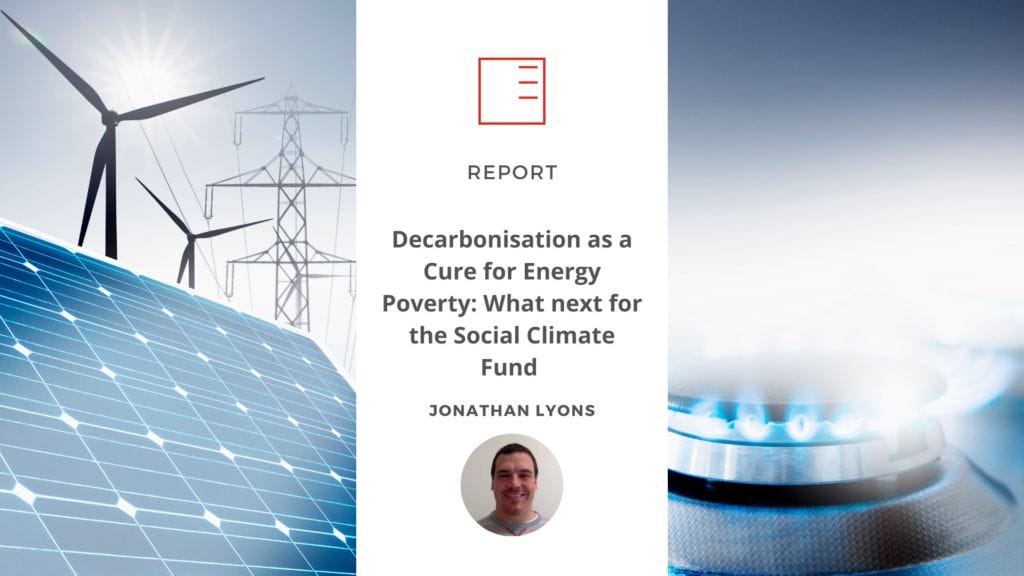
REPORT: Decarbonisation as a Cure for Energy Poverty: What next for the Social Climate Fund
More info 8. 11. 2022
8. 11. 2022
Our research assistant Jonathan Lyons wrote a report from a roundtable titled Decarbonisation as a Cure for Energy Poverty: What next for the Social Climate Fund. It was the 2nd roundtable on the topic of the extended EU carbon markets, this time from the social and just transition viewpoint.